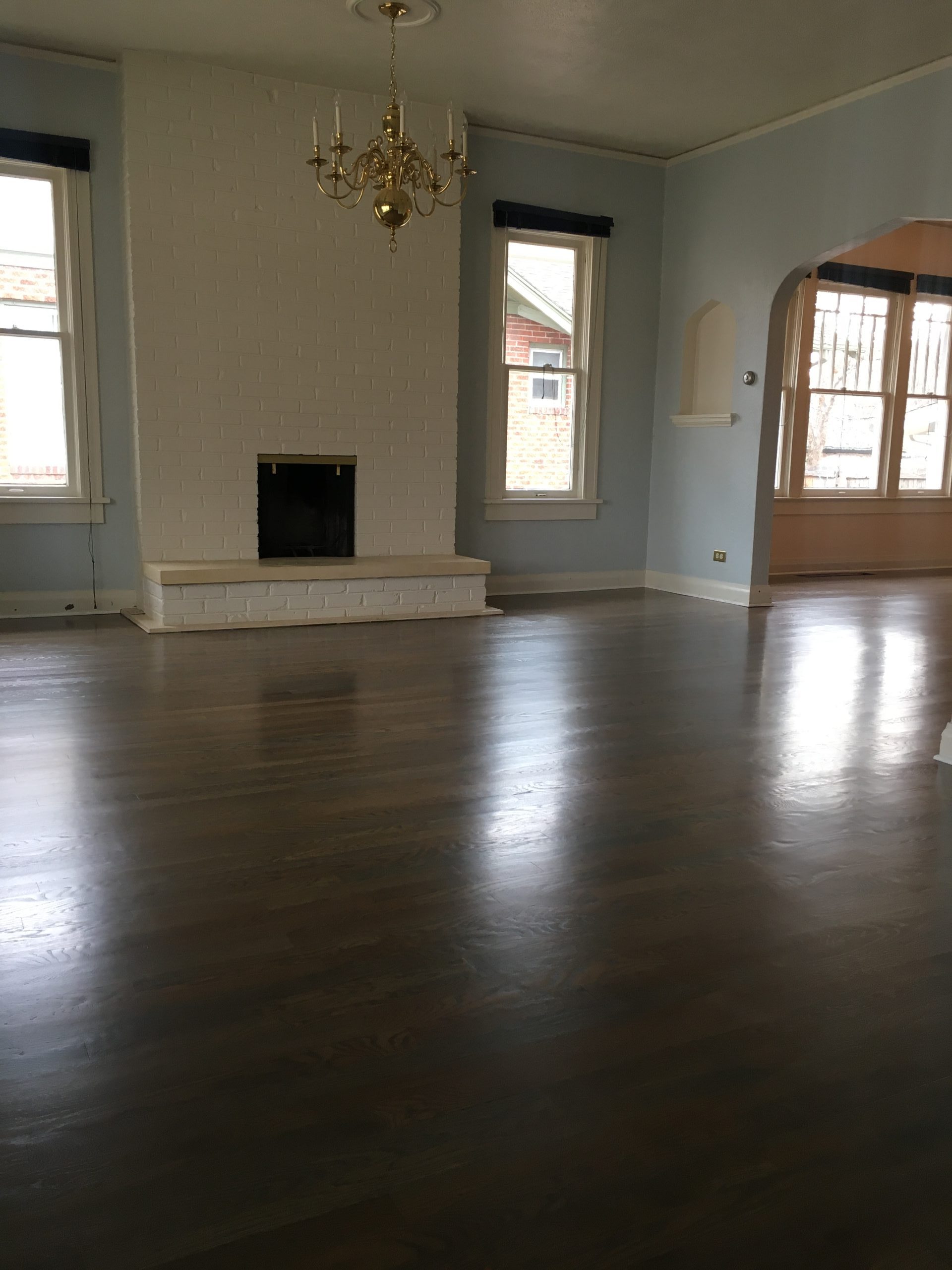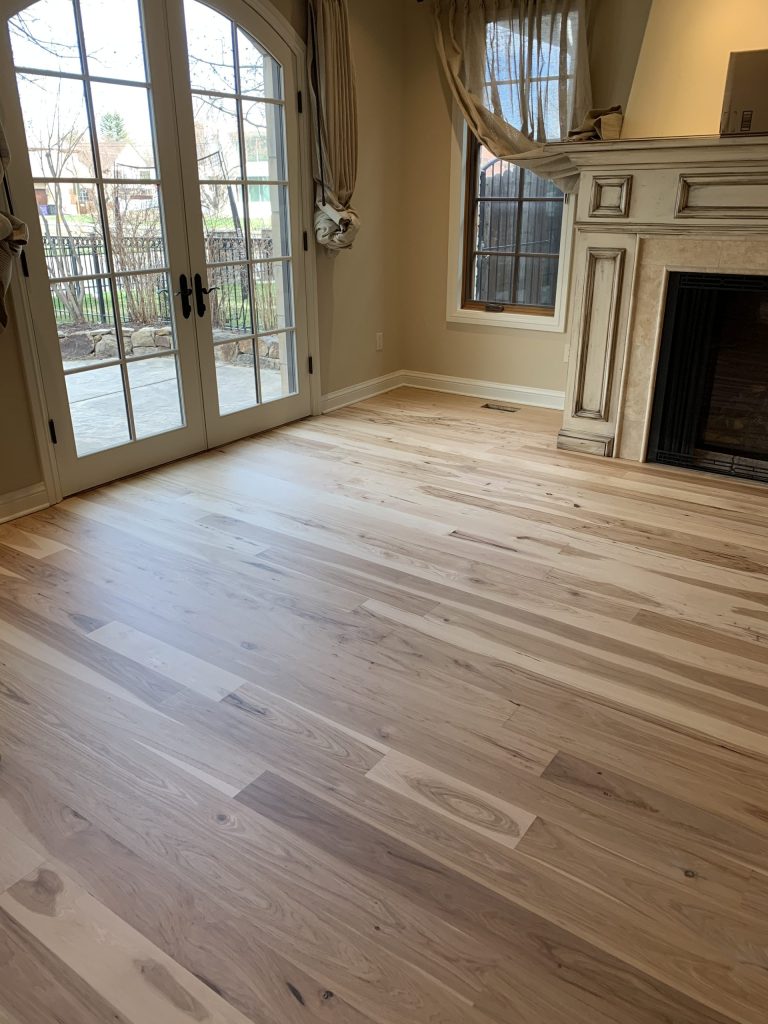If you’re planning to sell your home soon, you might be interested in making some updates. One of the most profitable updates you can invest in before listing is painting and changing the flooring. However, you might be unsure about which type of flooring to choose. You may have heard that hardwood floors are an excellent way to increase a home’s value, but is the investment really worth it?
The most truthful answer is that it depends. Generally, hardwood floors can indeed enhance the value of your home, but they come with a high price tag. In fact, hardwood flooring tends to be more expensive than most other options available in the market, although it usually offers a solid return on investment. Nevertheless, not all homes or hardwood options are equal.
Therefore, it’s important to carefully consider all the factors that can influence whether hardwood will truly add the equity you’re hoping for. Keep reading to learn more about hardwood flooring, so you can make an informed decision about whether it’s the right choice for your home!
Are The Gains Worth It?
When deciding if adding hardwood flooring to your home makes sense, it comes down to simple economics. No matter how attractive a product is, no one wants to invest in something that doesn’t make sense financially. So, does hardwood flooring provide a substantial enough return on investment to make it worth, paying a higher price tag, initially? This is where things get tricky. While in general, statistics paint a picture that most homes see a return on investment of approximately 75%, this is an imperfect science. In reality, there are many factors that play into whether or not hardwood floors will actually help you sell your home faster. Thus, each factor should be thoroughly considered, in regard to your unique property, prior to investing in hardwood.
Factors For Consideration
Consider the factors below when determining if your home could benefit from hardwood flooring:
Overall Condition and Location of the House
Prior to starting down the rabbit hole of flooring replacement, it will be important to take an honest look at your property. If your home needs a great deal of structural work or is very old, it may not make sense to put such a large investment into flooring. In these cases, the home may not be worth enough to warrant a costly investment into cosmetic updates without first addressing the bigger issues at play.
Location
Another factor to consider is the location of the property. If your home is located in an undesirable neighborhood, no matter how much money you sink into the home, there is nothing you can do to change this immutable fact. Thus, it simply won’t make sense to invest in expensive flooring if the home is unlikely to bring a high sale price due to its location.
The Flow of The Home
It is also important to take into account how your flooring flows with the aesthetic of the home in general. For example, if your home is contemporary and you choose a very old-fashioned, classic hardwood look, it may look out of place and confound the purpose of updating the floors in the first place. Simply put, if you plan to sell your home in the near future, you want to ensure that your flooring matches the overall look and feel of the house. Otherwise, buyers may think that your home needs updating and thus, devalue the property.
Your Budget
Finally, it’s important to keep in mind that while hardwood flooring is generally seen as a luxury item, it isn’t always necessary when reselling a home. Ultimately, you should make a budget and stick with it. Since the housing market fluctuates frequently, overextending yourself with the hope of getting a large return on investment can be risky. Many homeowners opt for laminate flooring instead, since it is more affordable, yet still looks amazing. However, if you are able to spend a little extra cash, hardwood flooring is still one of the easiest ways to add equity to your home.
How Much Does It Cost to Install Hardwood Flooring?
If you’re considering installing hardwood flooring in your home, you may have questions about cost. After all, hardwood flooring is a major investment, so it is important to be aware of what you’re getting yourself into before making a purchase. The reality is that the cost of hardwood flooring installation varies widely depending on the type of wood used and the size of the room being installed. Across the nation, you can expect to pay anywhere between $6-$12 per square foot of hardwood. Thus, depending upon the size of your home, the type of wood you choose, and the region you are located in, the cost of hardwood flooring will be vastly different from home to home. As such, for the most accurate estimate of cost for your home, speak with a local flooring retailer and installer.

What Kind of Wood Is Best for My Property?
If you determine that your property is a good candidate for hardwood flooring, you’ll need to consider which color, style, and type of wood will most enhance your home. It will be important to consider the style of your home (traditional, modern, ranch, historic, etc.) so you can choose a wood style that compliments the aesthetic of your home.
Additionally, you’ll want to consider the climate of your home. For instance, if you live in a cold region, you’ll want to select a species of wood that has good heat retention properties. On the other hand, if you live in an extremely humid region, you’ll want a wood that doesn’t absorb moisture well. Ultimately, you want wood with the correct properties, so that your flooring performs well wherever your home resides on the map.
Lastly, you will need to determine if you prefer natural wood floors or engineered wood floors. Natural wood floors tend to be more expensive than engineered wood floors, but they offer a unique appearance that no manufactured product can match. Engineered wood floors are made from real wood veneers that are glued together to create a solid surface. They are typically less expensive than natural wood floors, but they lack the warmth and character of natural wood floors. In the end, both are quality choices, it comes down to personal preference.
The Bottom Line
Hardwood flooring can be a great way to increase the value of your home, although it won’t be the right flooring choice for everyone. If you’re considering installing hardwood flooring with the hopes of obtaining a higher sale price, it will be important to do your research first, so you can rest easy knowing you made the best choice for your unique home.

